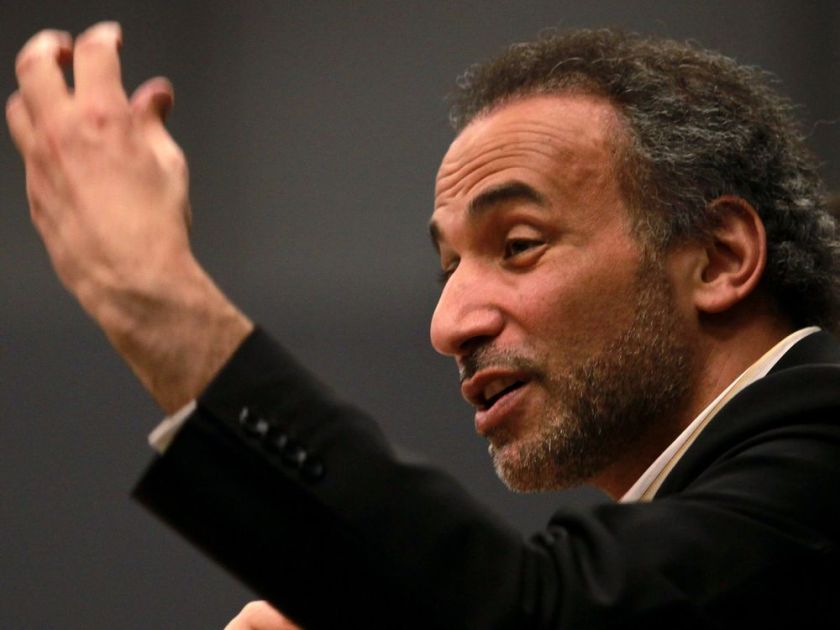“We must get involved in all domains where we can have more Islam …”
“The more we are present, the more women are seen wearing hijab, discussing it, explaining their approach, explaining who they are, the more we will create habits and things will change.”
“We must control school programs and stop them from propagating values that do not conform to our principles.”
“We must move into public schools, using empty spaces to dispense complementary religious learning.”
These words by Swiss-born global superstar Muslim preacher Tariq Ramadan, grandson of Hassan al-Banna, founder of the Muslim Brotherhood, explain why so many francophones see hijabs and niqabs as symbols of political Islam, or Islamism: using the tools of the state in order to further a religious agenda.
Before being jailed in France to await trial on rape charges, Ramadan was a frequent visitor to Quebec, where he gave interviews to mainstream media and spoke to large crowds at the Palais des congrès.
Francophones read newspapers, books and magazines from France, where relationships between immigrants from North Africa and Français de vieille souche are bad for reasons that mostly don’t exist here.
France failed at integrating les Maghrébins who moved there after her North African possessions became independent. Algeria, in particular, was not just a colony, it was a full-fledged French territory, its inhabitants French citizens. The terrible war of independence created a lot of hatred, bitterness and resentment before de Gaulle said “enough” in 1962.
Islamists continue to make inroads in France. Newspapers often report comments by radical imams on women, non-Muslims or Jews that make people’s hair stand on end. Salafist imams are regularly expelled and hundreds of mosques have been closed in recent years.
More than 500 French Muslims joined ISIS. Who can forget Charlie Hebdo, le Bataclan and the people killed in Nice on Bastille Day?
Many francophones worry that Quebec will turn into France, where crowds pray in the streets, because Canada’s multiculturalism, they feel, promotes apartness instead of togetherness.
As Ramadan said to L’Express: “We are in favour of integration as long as we control the content.”
Although his speeches in Arabic have always been more strident and extreme than in French, he cultivated the image of bridge builder, a man of peace. People bought into his mystique.
The sexual assault accusations have not stopped many Muslims from admiring Ramadan. Being the grandson of Hassan al-Banna confers a lot of prestige although he denies being a member of the Brotherhood.
Laïcité, which has never been explained to Quebecers, cannot and should not silence people like Ramadan, unless they promote hatred or incite violence. In itself, political Islam is not a crime. But many Quebecers feel that laïcité could at least prevent attempts to change things toward “more Islam.”
However, this strategy did not work so well in France, where laïcité has been the law of the land since 1905.
Yet, with laïcité, public schools could not set aside rooms for prayer, separate boys and girls — even non-Muslim — for gym, pull students from music lessons or sex education, or agree to some parents’ requests for segregated school yards.
Last spring, a public school in Montreal was set to rent out its premises for the annual “cérémonie du voile,” a Shiite ritual during which 9-year-old girls agree to wear the hijab forever. Many Muslims feel the girls are too young to take on such a commitment.
Religions should be kept out of all state institutions, not only to stop people like Tariq Ramadan and other insidious promoters of Islamism from scoring political points, but also to allow the faithful to worship without having fingers pointed at them.
Let’s not forget that many Muslims who emigrated here did so to escape Islamism.


























